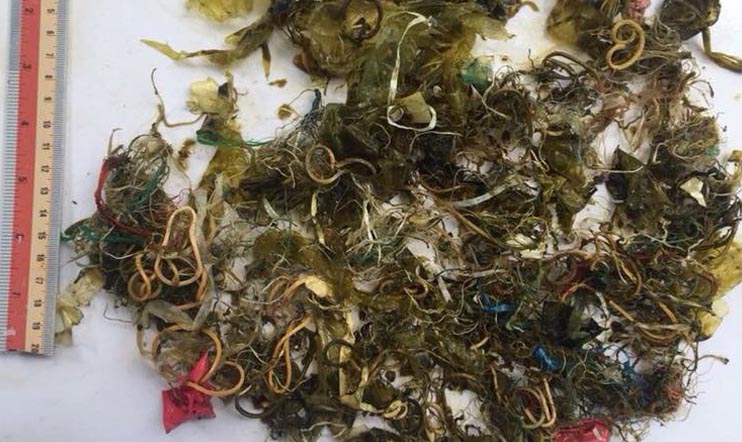Barely a week after discovering that a whale had died on Thai shores after eating 80 plastic bags, yet another sealife tragedy underscores the need to rewire our plastic-consuming habits.
Thailand’s marine officials said in a report released today that a green sea turtle was the latest magnificent creature to die from a stomach full of plastic waste.
The turtle, which washed ashore near Chonburi’s Lamchabang Port, died on Wednesday — two days after officials discovered it and attempted to give it medical attention, according to Channel 7 News.
An autopsy revealed a tiny stomach stomach filled with everything from rubber bands and nylon ropes, to plastic bags and loose pieces of fishing gear. The department’s veterinarian team concluded that the sea creature suffered from a resultant loss of appetite and low levels of protein in its bloodstream, leading to cysts that ultimately resulted in heart failure.

A raft of efforts, both corporate and governmental, to reduce pollution have recently gotten underway, including initiatives like the Thai National Parks’ recent ban plastic and styrofoam and the Green Cafe Network’s “Straw on Request” policy. The latter has so far seen 30 restaurants agree to reduce plastic waste by handing straws only to customers who request them.
Following the whale’s death, one of several online campaigns demanded that major retailers in the country — including Tesco, Big C, 7-Eleven, Central Group, and The Mall Group — begin charging customers a small fee for plastic bags, hoping that will make at least some impact on that habits of customers, some of whom still demand their purchases be double-bagged.
Until we start taking the issue of plastic waste seriously, this is probably far from the last sea creature we’ll find in this condition.




